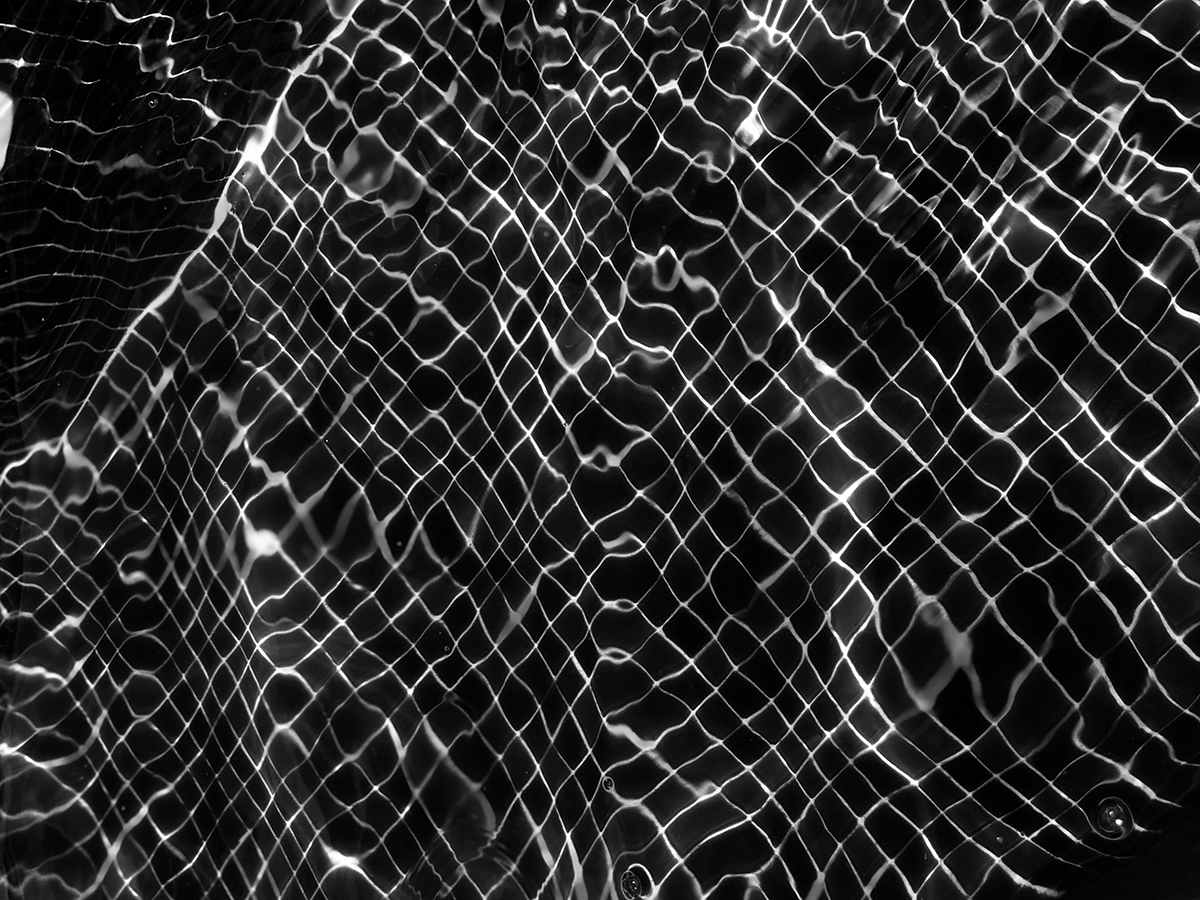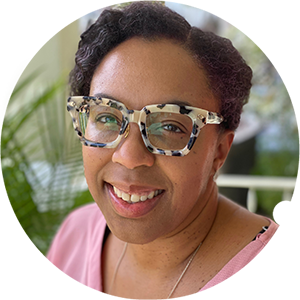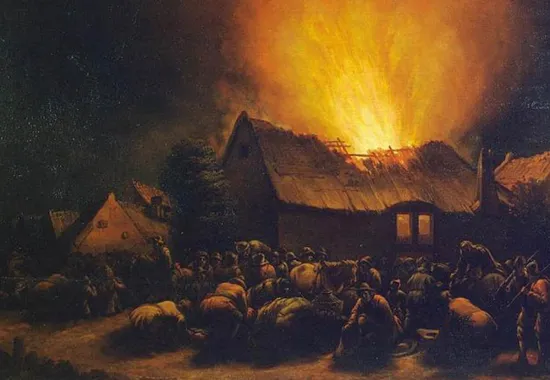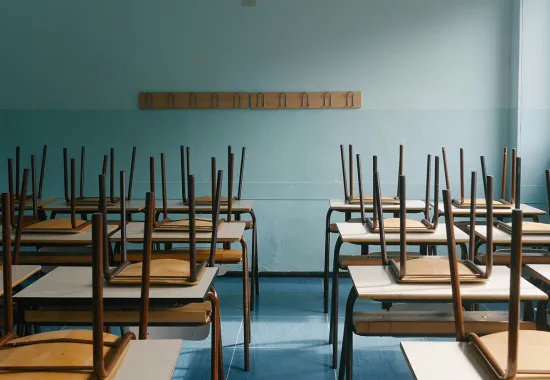Night Pool
That time we snuck into night pool, a jagged rip in the chain-link fence, how it cut the delicate skin around Kara’s ankle, blood dripping our path like a breadcrumb trail. The moon hung low, peeking through the project buildings, the hum of a thousand air conditioners dripping condensation onto the sidewalk below. This was a public pool in the Bronx, in the rear of a community center. Brightly lit when open, with its many advertisements: housing assistance, literacy classes, after-school programs, the colorful scribblings of toddlers taped to the windows facing out, so that passersby could glimpse the artwork. Look there, a sun, a yellow ball in the upper left corner; a gingerbread man, with a row of lopsided buttons; another, just a riot of color, to rival anything in the MOMA. I had never visited this center but there were enough scattered throughout the city, and I understood their purpose. I had refused their beckoning, the recommendations of caring adults, preferring to carry my poverty and anger like an albatross.
It was the summer, and the heat coated our skin, moisture pooling in the crevices of our necks, our knees. Heat that hung thick as a curtain, made the old folks put a sheet on plastic-covered sofas and sit in front of rotating fans, waving monogrammed church fans, made children restless and lazy, sent teenagers seeking relief on the trains, in the movie theatres, in closed public pools with illicit entries. Heat that conjured up violence, heat that made battered women finally grab a butcher knife, made girls reveal razor blades hidden under tongues and scar others more beautiful, made fists and knives and guns seem the only option for broke boys scrounging a city for the next thing. Public officials knew about night pool, posted signs: “No Entry,” “Trespassers Will Be Prosecuted,” “Obey Posted Operating Hours.” No matter. We were young and free. We were prepubescent and loose, adolescent and angry, teenaged and horny. We were hot and were joining hundreds of others by sneaking into public pools across the city.
I sensed the emptying of the area and peeked from behind my hiding place. There were two girls surrounding another lying on the ground, cradling her leg. I rushed over to them.
Dozens already there. Most were in the water, so crowded you could only stand in place, splash around. The streetlights cast a dim shadow over the area, and the water seemed phosphorus, blue-jeweled, a beckoning relief from the heatwave. Kara was leaned over, McDonald’s napkins pressed to her leg, the wound maroon and puckered on her skin. I stuck my fingers into the water, warmer than I expected. Kara had convinced me to wear a two-piece under my dress, and I fingered the straps where they cut into the skin on my shoulder. I was relieved that Kara was hurt. She couldn’t get in the water with blood dotting her ankle, which prevented me from having to strip. Being gawked at by the boys and men in the water, surrounding the pool, milling about with their boomboxes and blunts and 40-ounce beers disguised in brown paper bags. Even worse were other girls. They could spot your insecurities in seconds, size you up and land on the stretch marks on your thighs, a stray hair you’d missed when you plucked your chin, the fat roll around your middle that you didn’t suck in because you were too busy breathing.
Then, raised voices. A fight. Ancient instincts made us pause, the sudden gunfire, shots over our heads as everyone leapt from the water. There were screams, a stampede toward the exit. Kara grabbed my arm, pulled me behind a green metal structure, almost as tall as us. It vibrated and gave off heat, like some ancient mechanical monster, a low hum amongst the yells. I sensed the emptying of the area and peeked from behind my hiding place. There were two girls surrounding another lying on the ground, cradling her leg. I rushed over to them. “Flesh wound” floated up to me as I stared down at what was essentially a long, deep scratch on the girl’s leg. Hers was the only injury.
“Damn,” I said. The two standing friends nodded their agreement.
“It ain’t even that bad. You out here moaning and groaning.” Friend number one.
The injured girl moaned.
“You ain’t even really get shot like that.” Friend number two.
Kara was suddenly beside us. She pulled the rest of the napkins from the back pocket of her poom-poom shorts, crouched over and pressed them into the girl’s hand without a word.
“Let’s go,” she said, standing up.
We took the train into the city. We moved from car to car until we could find one that was normal: no kids performing acrobatics, the soles of their feet slapping the roof of the car when they flipped; no woman with ashy lips preaching from a tattered Bible; no unhoused, unwashed bodies surrounded by a dozen dingy plastic bags, a shopping cart bungie tied to their wrist; no men with a certain look in their eyes, who would pull their dick out the second they caught you slipping. We settled on a bench in front of the subway map. We were directionless and it felt like freedom, our next destination wherever we wanted to travel. We decided on the West Village. We sat in silence, enjoying the air conditioning, Kara with her foot on the seat so she could peer at her scratch. A scrap of napkin had dried into the blood.
“Leave it alone,” I said.
She put her leg down.
Sometimes it seemed that everyone knew to head downtown, and the streets would be teeming with people, carousing and laughing. It was one of those nights. We watched a man finger his date on someone’s stoop. We went in and out of businesses: the tattoo shops, sex stores, fast-food chains, psychics. We didn’t bother with the bars. Despite our best efforts, we looked young, and we knew it. A trio of guys whistled at us, but harmlessly, and we fell in with them, talking and flirting. One of them took off his shirt, flexed his muscles, began doing pull-ups from the scaffolding, jumping up to slap street signs. This was courtship. We stayed with them until we ran into some other girls, older than us, with more exposed skin, a more willing energy, painted lips and heeled boots. The guys left us. No offense taken; we never even learned their names.
“I’m hungry,” Kara said.
Between us we had about seven dollars. We headed to Gray’s Papaya. It was a three-mile walk uptown but that helped us kill time. There was nothing like Gray’s, with their “Recession Special” window banners, and two hotdogs and a drink combo. We had enough for one deal, each of us with a hotdog, sharing a cup of pineapple punch. We sat on bar stools lined up in front of the window.
“Look who it is,” I said, pointing to the door. The three girls from the pool had just entered. They saw us too.
“Hey!” The girl with the injured leg yelled, waving at us. She turned so we could see her leg. It was plastered with the napkins, and what looked like scotch tape holding them in place.
“We match!” Kara said, extending her leg and pointing to her own wound.
The three girls placed their orders and then joined us. I sat there enjoying my hotdog, ketchup and onions, taking small sips of our shared drink, chatting with our new friends. Condensation fogged the window and we kept wiping it with our hands so that we could peer outside. Or sometimes we wrote in it, silly stuff like initials in hearts, our aliases, the name of our crush. When we were done eating, we exited into a sky beginning to lighten. We took turns hugging, saying our goodbyes, then headed in opposite directions, the sounds of our city surrounding us.
Recommended
Child's Play
Pungoteague, 1652
Parents Just Don’t Understand






